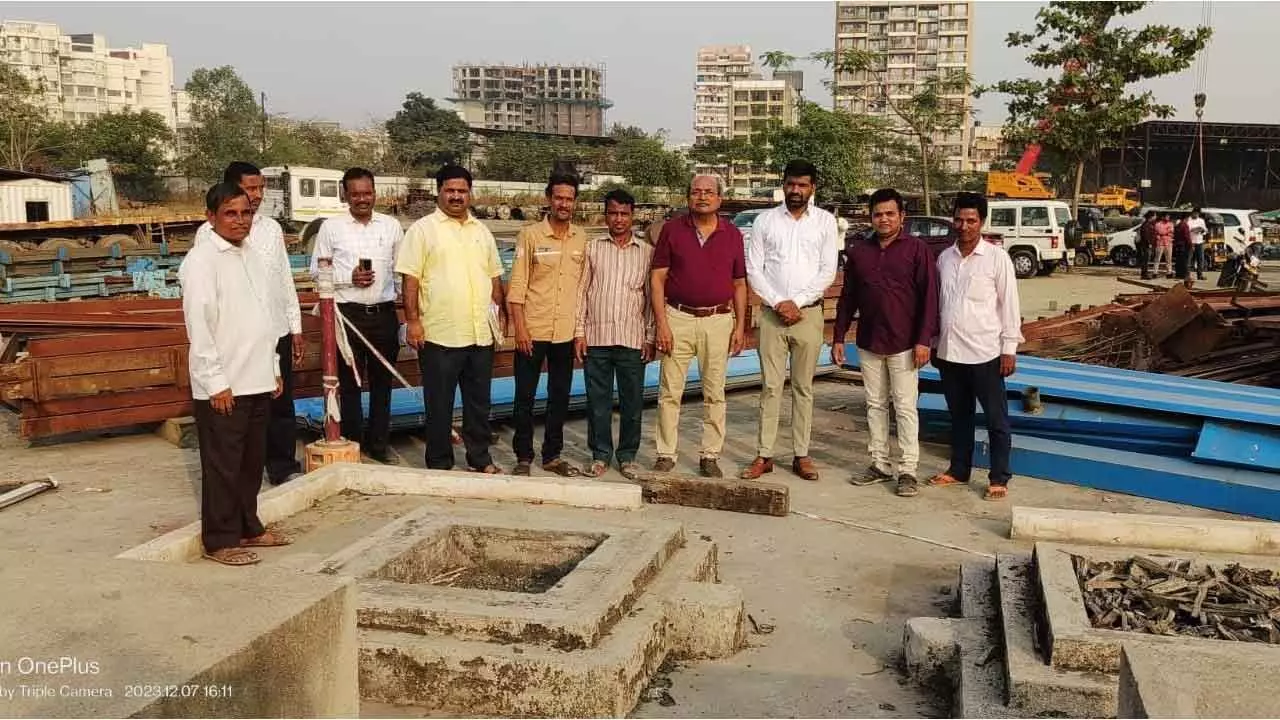NGT Imposes Penalty On TTD For Delay In Responding To Ulwe Balaji Temple Case
The project, which involves constructing a temple on a 40,000 square meter plot in an ecologically sensitive coastal zone, has faced opposition from environmentalists
NGT Imposes Penalty On TTD For Delay In Responding To Ulwe Balaji Temple Case

The NGT has also directed the Union Ministry of Environment, Forest and Climate Change (MOEFCC) to submit its opinion on the matter. The case highlights the conflict between religious development and environmental protection, with concerns raised about the potential impact on local fishing communities and the vulnerability of the site to rising sea levels
In a significant development in the Ulwe Balaji temple case, the National Green Tribunal (NGT) has pulled up the Tirumala Tirupati Devasthanam (TTD) counsel for delay in responding to the application raising environmental concerns and imposed a penalty of Rs 10,000 on the temple body.
As the NGT’s western zonal bench took up the case on Friday, filed by environmental watchdog NatConnect Foundation director BN Kumar, a junior advocate representing TTD counsel Satya Sabharwal sought some more time to file the rejoinder.
The Bench comprising – Justice Dinesh Kumar Singh as judicial member and Dr Vijay Kulkarni as expert member – was visibly upset and observed that the last order was passed on August 30, 2024 when the TTD counsel had sought two weeks’ time to file rejoinder.
Earlier, advocate Ronita Bhattacharya brought up to the Bench’s notice the fact that TTD reply was still not submitted despite the order passed four and half months ago.
Justice Dinesh Kumar Singh said TTD would be allowed to file rejoinder subject to the payment of Rs 10,000 as penalty for the inordinate delay.
TTD’s junior counsel sought to excuse the delay on the ground that there has been a change in the government in Andhra Pradesh since the NGT case was filed. But the Bench did not accept the plea and posted the case for the next hearing for March 20.
TTD is governed by the AP government’s Endowments Ministry. The temple board is also appointed by the State.
The Bench also asked the Union Ministry of Environment, Forest and Climate Change (MOEFCC) to file its affidavit after advocate Bhattacharya insisted that the Centre’s response was vital since serious environmental concerns were raised. The Bench asked NatConnect counsel to file rejoinders to the affidavits by CIDCO and the Maharashtra Coastal Zone Management Authority (MCZMA).
The case arises out of the environmental concerns expressed by Kumar on the plea that the Tirupati Venkateswara Swami temple project has been allotted a 40,000 square meter plot in an ecologically sensitive zone which was once dominated by intertidal wetland, mudflats and mangroves. The plot was carved out of a temporary casting yard built for the Atal Setu, burying the wetland and mudflats, Kumar’s application said.
In a related development, the casting yard itself did not have the mandatory pollution control board permission before starting the work, official information obtained under the RTI Act shows.
Meanwhile, NatConnect has pointed out to Andhra Pradesh Chief Minister N Chandrababu Naidu that the Navi Mumbai temple project on the Ulwe coast also faces dangers from the rising sea levels, apart from violating the environmental norms.
Kumar has, therefore, requested Naidu to “seriously reconsider” the project and ask CIDCO for a plot in an alternative location. “We are not at all opposed to the temple per se, but it could be planned in an environmentally friendly area,” the activist said.
He also pointed out that a flood-hazard line runs through the temple plot, a fact confirmed by CIDCO’s layout map.
NatConnect Foundation drew Naidu’s attention to the Telugu Desam Party’s spokesperson Neelayapalem Vijayakumar’s media statement in August 2023 criticising the then state government led by YS Jagan Mohan Reddy for hurrying up with the temple project in the face of concerns from the environmentalists.
At the NGT, the applicant presented Google earth maps of the coastline showing intertidal wetland, mudflats and sparse mangroves before the casting yard came up in 2019.
MCZMA said in its affidavit that the CRZ nod was granted based on the coastal zone management plan (CZMP)-2019 as approved by the MOEFCC. NatConnect, however, said the CZMP had not considered the ground situation prior to 2019 when the temple and the casting yard area used to be an active fishing zone.
Talking to Bizz Buzz, Nandakumar Pawar an environmental activist and president of Maharashtra Small Scale Traditional Fish Workers Union, said, “In any development activity in the coastal areas, the local fishing community bears the brunt and no government worth the name seems to be bothering about it.”
Even in the case of the Balaji temple project at Ulwe, it is the fishing zone that has been allotted to the project, Pawar pointed out.
Prior to the temple project the entire area was leased out to MMRDA for a casting yard for the Atal Setu and the fishing community was barred entry to the sea from that point, Pawar said.
“We were hopeful of resuming fishing after the completion of the sea bridge, but we are disappointed now,” he said.
Explaining the reason behind filing the NGT case, NatConnect director BN Kumar said, even god will not permit environmental violations. In fact, at Tirupati, we find slogans written by the TTD to respect nature and the temple authorities have even banned single use plastic.
“We appreciated the TTD which had once cancelled the foundation stone ceremony at Ulwe site after we raised alarm over Coastal regulation Zone (CRZ) violations,” Kumar said and expressed the hope that new Andhra Pradesh Chief Minister Naidu would see the ground reality and seek an alternative plot for the temple.
“We welcome wholeheartedly a mini-Tirupati complex in Navi Mumbai by the TTD,” he added and called for building the project in an environment friendly location.

